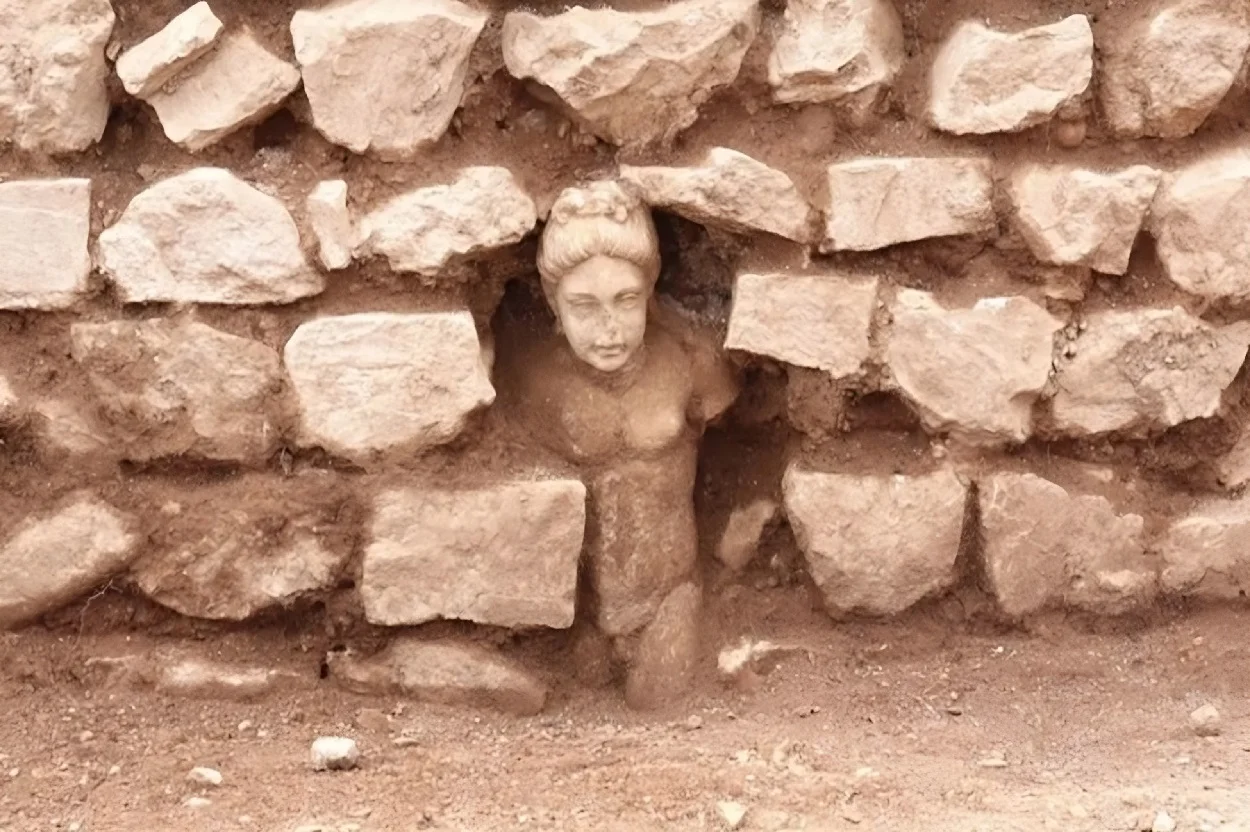Recent fire safety works at the ruins of Philippi have uncovered significant archaeological findings, including a public building with a statue embedded in its walls.
Philippi was a prominent Greek city situated near the modern town of Krinides in eastern Macedonia, Greece. The city was founded by Thasian colonists as Crenides in 360/359 BC, but was annexed and renamed as Philippi in 356 BC by King Philip II of Macedon.
Philippi was strategically positioned to control the route between Amphipolis and Neapolis, a key section of the great royal road that spanned east-west across Macedonia. In the 2nd century BC, the Roman Republic reconstructed this route as part of the Via Egnatia.
Following the Battle of Philippi (42 BC) on the plain to the west of the city, Philippi was colonised by Roman veterans and renamed as Colonia Victrix Philippensium.
Already weakened by the Slavic invasions at the end of the 6th century AD (which devastated Macedonia’s agrarian economy), Philippi was mostly destroyed by a major earthquake around AD 619.
Recent fire safety works have uncovered several significant archaeological findings, including a statue of a young male figure embedded in the walls of a public building, remnants of roads, workshops, residential structures, and a building southwest of the palaistra believed to be a public bath (thermae).
“The fire safety project has provided new evidence, challenging the previously held belief that Philippi was abandoned after the 6th century AD,” noted Stavroula Dadaki, Director of the Ephorate of Antiquities of Kavala-Thassos.
“We have identified buildings dating from the 9th to 11th century AD, proving that the city remained inhabited during this period,” added Dadaki.
Archaeologists plan to carry out further excavations within the city’s interior, focusing on a large structure near the ancient theatre, where a partially excavated statue of a young woman has also been discovered embedded in the walls.
Header Image Credit : Ephorate of Antiquities of Kavala-Thassos
Sources : Ephorate of Antiquities of Kavala-Thassos





